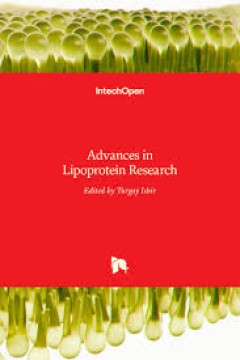Filter by

Advanced Strategies in Thin Film Engineering by Magnetron Sputtering
Recent years have witnessed the flourishing of numerous novel strategies based on the magnetron sputtering technique aimed at the advanced engineering of thin films, such as HiPIMS, combined vacuum processes, the implementation of complex precursor gases or the inclusion of particle guns in the reactor, among others. At the forefront of these approaches, investigations focused on nanostructured…
- Edition
- -
- ISBN/ISSN
- 9783039364305
- Collation
- 148 hlm; ill., lamp.,
- Series Title
- -
- Call Number
- -

Advances in Multiple Sclerosis Research-Series I
Designing immunotherapeutics, drugs, and anti-inflammatory reagents has been at the forefront of autoimmune research, in particular, multiple sclerosis, for over 20 years. Delivery methods that are used to modulate effective and long-lasting immune responses have been the major focus. This Special Issue, “Advances in Multiple Sclerosis Research—Series I”, focused on delivery methods u…
- Edition
- -
- ISBN/ISSN
- 9783039439478
- Collation
- 334
- Series Title
- -
- Call Number
- -

Advanced Research on Sprouts and Microgreens as a Source of Bioactive Compounds
Today, researchers are focused on studying and identifying new products that can be beneficial for both food and pharmaceutical purposes. In this context, sprouts and microgreens are widely recognized as functional foods due to their high nutritional value, and in particular, their high bioactive compound content, which is mainly composed of phytochemicals. However, despite extensive research o…
- Edition
- -
- ISBN/ISSN
- 9783036571768
- Collation
- 224 hlm,: ill, lamp; 21 cm
- Series Title
- -
- Call Number
- -

Advanced Research on Glucosinolates in Food Products
Glucosinolate-containing foods, such as vegetables from the plant order Brassicales and its derivative products, are valued for their health-beneficial properties. The latter are linked to glucosinolate hydrolysis products, such as isothiocyanates.The book "Advanced Research on Glucosinolates in Food Products" collects the latest research on the impact of the whole food supply chain, including …
- Edition
- -
- ISBN/ISSN
- 9783036529769
- Collation
- 238 hlm,: ill, lamp; 21 cm
- Series Title
- -
- Call Number
- -

Advances In ME/CFS Research and Clinical Care
Advances in ME/CFS Research and Clinical Care spotlights Myalgic Encephalomyelitis/Chronic Fatigue Syndrome (ME/CFS): a maligned, stigmatized, under-researched disease, which lacks a definitive, objective clinical test for its diagnosis, and definitive palliative and curative treatments. A few brave physicians attempt to alleviate the suffering of the afflicted
- Edition
- -
- ISBN/ISSN
- 9782889632060
- Collation
- -
- Series Title
- -
- Call Number
- -

Advanced Polymer Composite Materials: Processing, Modeling, Properties and Ap…
The use of composite materials is ubiquitous in every field of human activities, including in the agricultural, industrial, environmental, biomedical and transport sectors. After a pandemic with the simultaneous unfolding of an energy and climatic crisis, we now realize how necessary it is to carry out studies on composite materials based on polymers to positively affect our current society and…
- Edition
- -
- ISBN/ISSN
- 9783036578101
- Collation
- 480 hlm,: ill, lamp; 21 cm
- Series Title
- -
- Call Number
- -

Advanced Photocatalytic Materials for Environmental and Energy Applications
With the development of modern society, environmental pollution and energy shortages have become the focus of attention worldwide. Most of the global energy supplies are generated from fossil fuel, which gives rise to environmental pollution and climate change. Photocatalysis technology, which can directly convert solar energy into high value-added fuel and chemical materials or degrade a wide …
- Edition
- -
- ISBN/ISSN
- 9783036596488
- Collation
- -
- Series Title
- -
- Call Number
- -

Advances in Lipoprotein Research
Low-density lipoprotein (LDL) circulating in human bloodstream is the source of lipids that accumulate in arterial intimal cells in atherosclerosis. In-vitro–modified LDL (acetylated, exposed to malondialdehyde, oxidized with transition metal ions, etc.) is atherogenic, that is, it causes accumulation of lipids in cultured cells
- Edition
- -
- ISBN/ISSN
- 9789535130482
- Collation
- 118
- Series Title
- -
- Call Number
- -

Advances in Legume Research
In a world urgently requiring more sustainable agriculture, food security and healthier diets the demand for legume crops is on the rise. This growth is fostered by the increasing need for plant protein and for sound agricultural practices that are more adaptable and environmentally sensitive
- Edition
- -
- ISBN/ISSN
- 9782889456321
- Collation
- 609
- Series Title
- -
- Call Number
- -

Advances in Laser Produced Plasmas Research
An innovative theoretical model is developed on the backbone of a classical Lorenz system. A mathematical representation of a differential Lorenz system is transposed into a fractal space and reduced to an integral form. In such a conjecture, the Lorenz variables will operate simultaneously on two manifolds, generating two transformation groups, one corresponding to the space coordinates tr…
- Edition
- -
- ISBN/ISSN
- 9783039364138
- Collation
- 104
- Series Title
- -
- Call Number
- -
 Computer Science, Information & General Works
Computer Science, Information & General Works  Philosophy & Psychology
Philosophy & Psychology  Religion
Religion  Social Sciences
Social Sciences  Language
Language  Pure Science
Pure Science  Applied Sciences
Applied Sciences  Art & Recreation
Art & Recreation  Literature
Literature  History & Geography
History & Geography